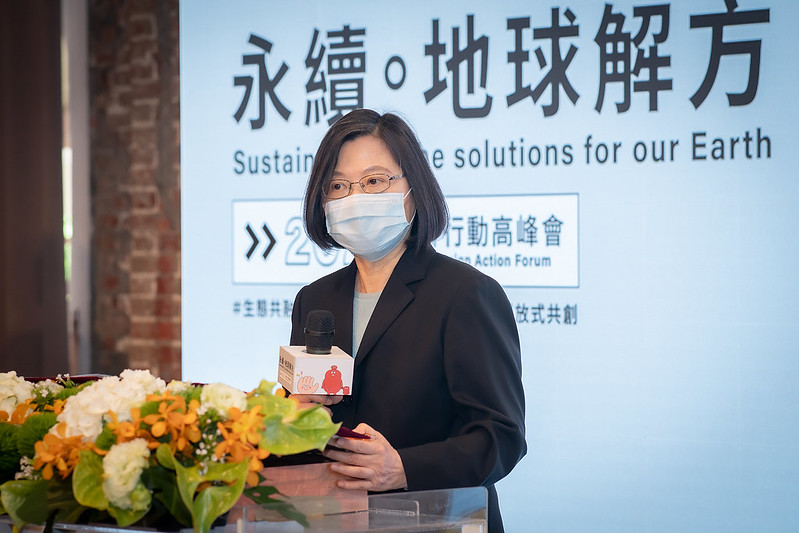Tsai reaffirms commitment to environmental sustainability
2021/04/26
President Tsai Ing-wen said April 22 that Taiwan is committed to achieving net zero carbon emissions by 2050, spotlighting the country’s efforts to boost sustainable development.
As a responsible member of the international community, Taiwan is leaving no stone unturned in combating climate change through policies such as the Forward-looking Infrastructure Development Program and the five-plus-two innovative industries initiative, Tsai said.
Energy reform is playing a key role in reducing carbon emissions, the president said, adding that the country is devising systematic strategies to reach the goal in sectors spanning agriculture, manufacturing, residential construction and transportation.
Tsai made the remarks during her opening address at the 2021 Social Design Action Forum on sustainable solutions in Taipei City. The event was organized by Taipei-based 5% Design Action and American Institute in Taiwan in collaboration with domestic media outlets, corporations and civil society groups.
According to Tsai, the government is working to turn challenges of the net-zero transformation into new business opportunities while securing the country’s position in global supply chains. The industrial sector is following suit, she said, citing examples such as Taiwan Semiconductor Manufacturing Co.’s participation in the RE100 renewable energy initiative, which promotes full reliance on green energy, as well as the Taiwan Circular Economy 100, an alliance of firms seeking to move toward the waste-reducing development model.
Taiwan will not sit on the sidelines of global warming, the president said. The country will continue working with other countries to create mutually beneficial outcomes, she added.
The five-plus-two innovative industries initiative centers on the high-growth sectors of biotech, green energy, national defense, smart machinery and Internet of Things, as well as promoting two core concepts: the circular economy and a new paradigm for agricultural development.
Launched in 2017, the FIDP is a comprehensive plan aimed at addressing Taiwan’s key infrastructure needs for the next 30 years. It includes projects spanning railway development, digital infrastructure, aquatic environment, food safety, green energy, urban-rural development, boosting birth rates and child care facilities, and nurturing talent and employment.
Source: Taiwan Today (https://taiwantoday.tw/index.php)












